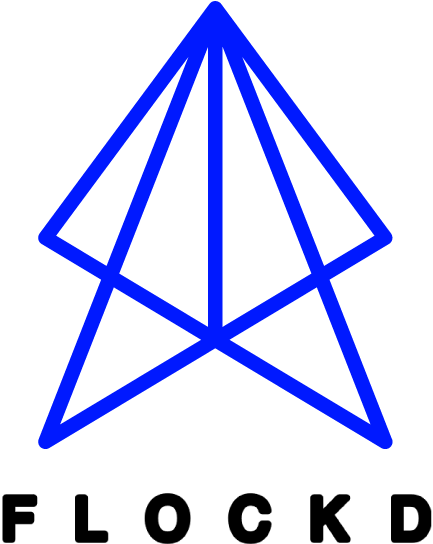According to an annual survey produced by Deskmag, the online magazine which covers the coworking industry, there are now nearly 800 commercial co-working facilities in the United States up from a little more than 300 only two years ago, and about 40 in 2008. Not only have co-working spaces sprung across the nation (and internationally) faster than wild mushrooms, but what once started as a commodity is now turning into a movement. Products, events, social networks, magazines, online tools, conferences and associations have now all been created for this new world of coworking. In a country that used to pride itself on blue-collar jobs, 9-5 work hours and benefits -is our idea of the perfect job changing? And, in turn, has this inspired a new American Dream for the 21st century?
Marissa Feinberg, owner and founder of Green Spaces along with her partner Jennie Nevin, has seen the coworking movement take shape since early 2008. Back, when coworking didn't yet had a name. In March 2008, Marissa and Jennie started a collaboration of freelancers, entrepreneurs, and wannabe world changers who would get together on a regular basis to ideas share. From this was born the idea of Green Spaces in 2009, a co-working space in the Tribeca historic district with a focus on socially tuned-in entrepreneurs. Although, 25% "non-green" members have been accepted with the hope, Marissa admits, to one day be converted.
Having witnessed the growth of co-working for the last 6 years, Marissa is able to pinpoint several key changes within the industry. "Everyone and their mother who's young and growing up wants to be the next Mark Zuckerberg" Marissa states, "That's the new American Dream." There are several factors Marissa associates to this change in our country's philosophy. First most, are the tragedies this nations has faced in the last decade. Events such as 9/11, Hurricane Sandy, Hurricane Katrina and the Sandy Hook Elementary School shooting, among several other devastations, have made people compassionate and aware of social issues. And, in several examples, this has inspired entrepreneurs to start mission-based startups and businesses. Then there's the economic collapse, which has forced workers, students and executives around the world to think differently about how to make a living.
"They're realizing they can't just go to business school get a job at a bank and be secure," says Marissa. "So, if they want to do something more creative they think about what they really care about and those come down to social issues." But most importantly, is the way in which being young has turned into an asset rather than a lability. In 2008, Forbes Magazine started a World's Youngest Billionaires under 40 list. These Mark Zuckerberg's of the world -who did what inspired them and not what society expected of them - were making bundles of money beyond their wildest dreams. And, that's the bottom line. If you could make millions of dollars doing what you love compared to climbing the ever extending corporate ladder, which would you chose? But just like any dream, this one too comes with it's own set of illusions. Failure rates for entrepreneurs depending on the industry range from 45% - 58% according to the Statistic Brain Survey.
But that analysis in itself -simply looking at the payoff- is a paradox to the co-sharing movement where mentorship camaraderie and ideas-bouncing are at its core. "I get emails everyday from people who want to start their own co-sharing spaces," Marissa says. "And, I literally have a template of how-to that I send them." Any other business would have reacted differently when approached by potential competition. But, that's not what co-working is all about. "I help them. Welcome to the world of co-working I tell them. You should check out Deskmag. Why wouldn't I help them? We could be future partners. Plus, it's good to help people" Marissa states. This reaction is very telling of the movement and the kind of people working within it. As Alex Williams from New York Times best put it, coworking is all about working alone together. And, though you might be skeptical about how much company information to divulge these coworking communities can be a real advantage for many.
These advantages simply grow exponentially as products, events, social networks and online applications are now being created specifically for co-workers. Marissa actually invented Flockd, a tabletop pyramid for productivity and connectivity. The idea came to her from the co-working space itself. "A lot of the time in an open space, you can't tell who is free and who is busy but co-working is a space built for collaboration," Marissa explains. Sometimes coworkers will want to bounce an idea off another co-mate but is scared to interrupt. This is the tool that solves that problem. When standing up it means that the coworker is available to chat but when Flockd is laid on its side a red X appears signifying they are preoccupied. "I just wish I had made [Flockd] in time for say Occupy Wall Street. When people were saying we need the park to come together. It's like no you don't. You can go to Starbucks, you can go anywhere. You just need a tool to start movement" Marissa states.
And that is exactly what has happened with co-working. Millions of entrepreneurs, freelancers, designers and startups were given the tool that brought them all together. Now in a buzzing hive of creativity and ingenuity, who knows what can be created? It's like building a think tank where you're simultaneously growing 20 different companies and they are all working together while still working for themselves. The sky is the limit.
Click here to read the full story on Social Pulse via Popcorn Productions.





